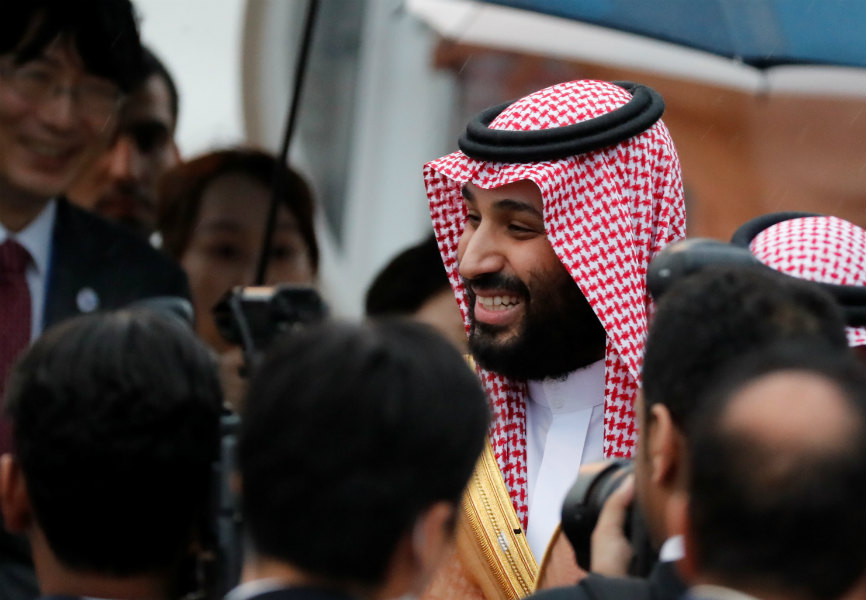(This is the fourth in a series of year-end analyses of the main countries and regions covered by Eurasia Group. Read our pieces on the Americas, China, and Europe for additional coverage.)
US retrenchment and shifting alliances were two of the dominant themes in the Middle East and North Africa (MENA) in 2019. Eurasia Group's MENA team explains what some the year's most important developments mean for 2020.
What was the most important development this year in the Middle East?
The
attack on Aramco's facilities in eastern Saudi Arabia was the region's most cataclysmic event in 2019. Iran leveraged the Yemen war to attack Saudi Arabia's biggest oil processing facility, one that handles roughly 5% of global production. Iran's mullahs exposed the vulnerability of Saudi assets, the weakness of its defenses, and the US's new reluctance to intervene to uphold security guarantees with the Arab Gulf countries. The US has grown averse to foreign interventions, and President Donald Trump has embraced the spirit of his campaign promise to get the US out of wars.
The leadership in Riyadh quickly absorbed the attack and refocused on the future. Aramco's facilities were quickly repaired, and the kingdom went forward with a record-breaking IPO for the company on the local stock exchange. But Saudi Arabia's geopolitical strategy began to shift. Crown Prince Mohammad bin Salman is now focused on de-escalating conflict. He is attempting to
end the Yemen war, resolve the Gulf dispute with Qatar, and lower tensions with Iran. Across the board, Saudi Arabia is now moderating, and its leadership will focus on easing tensions to attract foreign investment.
What was the most overlooked issue?
The
Libyan conflict, which has entered a new phase since April, offers a view on the most important dynamics in Middle Eastern politics. Khalifa Haftar, the leader of the self-styled Libyan National Army, has laid siege to Tripoli and the UN-backed Government of National Accord (GNA) —with the tacit approval of much of the international community that brought it to power in the first place. A cold war between two camps of opposing regional powers is now playing out in Libya. One the one hand, the United Arab Emirates (UAE), Egypt, and Saudi Arabia are backing Haftar, who says he aims to rid Tripoli of the grip of the Muslim Brotherhood-affiliated militias that he says control the GNA. On the other, Turkey and Qatar support the GNA and militias fighting Haftar. Other powers such as Russia have also placed bets on strongman Haftar, while the Europeans are ready to cut deals with any power that can secure the borders and stanch the flow of migrants across the Mediterranean. Whether Haftar fails or succeeds in Tripoli will determine his credibility as a leader and the country's stability—and have fallout for oil prices—for years to come.
What is the most important trend to keep an eye on in 2020?
Russia and China will try to expand their relationships with different countries across the region, capitalizing on what they see as a lack of US engagement. Many Arab countries, meanwhile, are looking to Russia and China for investment, as shown by the major deals signed between Russian and Gulf companies and Chinese investments in North African countries such as Egypt and Morocco. China views the Middle East as part and parcel of its
Belt and Road Initiative. Russia, on the other hand, is using the foothold it created in Syria to expand its political and economic influence in the region. It has positioned itself as a credible mediator for regional conflicts. Arabs believe that neither China nor Russia are likely to impose the same level of political preconditions to military or economic cooperation that their US ally has done in the past. At the same time, the US has demonstrated it is reluctant to invest further in the region beyond what it has already done, and in some areas is actually seeking to scale back its involvement.

 Saudi Arabia's Crown Prince Mohammed bin Salman arrives at the G20 Summit in Osaka, Japan. REUTERS.
Saudi Arabia's Crown Prince Mohammed bin Salman arrives at the G20 Summit in Osaka, Japan. REUTERS.